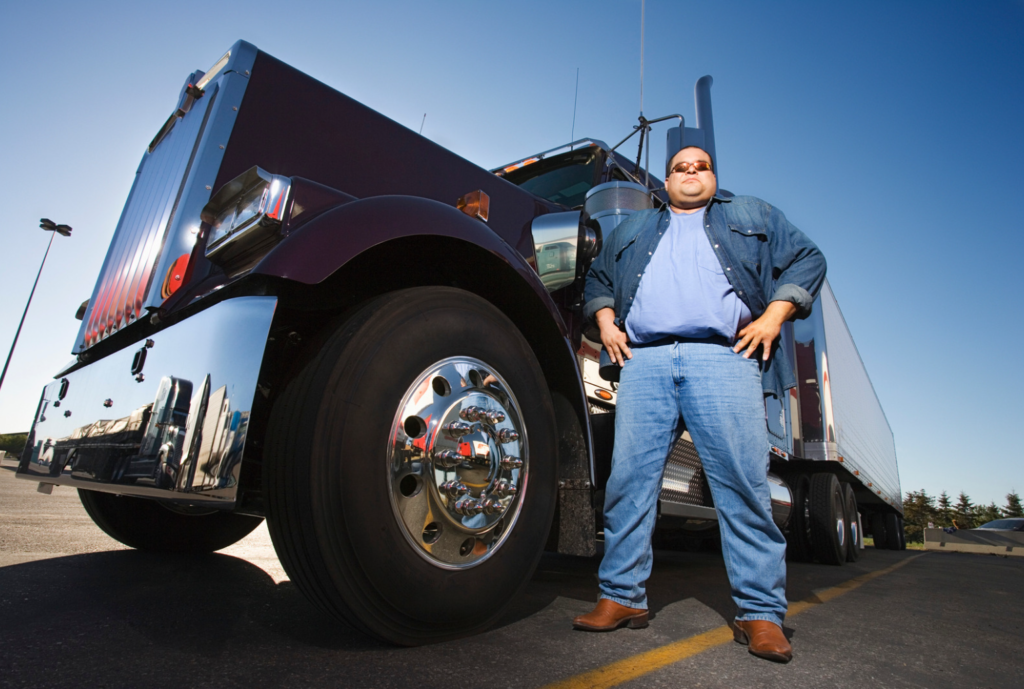Being a truck driver is a fulfilling career, especially when you’re lucky enough to work with a company that will let you take control of your business.
The pay is extremely good, you can choose the lanes you want to drive, and you have more freedom. However, before you dive into the trucking industry, it’s important to get into the swing of things.
If you’re new, there are rookie truck drivers to watch out for to avoid disasters.
For instance, drivers who leave the parking lot without semi-truck roadside assistance services run the danger of becoming stranded in a strange region with no nearby help. Other times, drivers overextend themselves and end up in a serious truck accident.
Luckily, these things can be avoided with the help of basic knowledge and fast thinking. Below are rookie truck driver tips to help you get started.
8 Rookie Truck Driver Mistakes
Going Too Fast
Truck driving laws in the US permit up to 20,000 lbs. for one axle and 34,000 pounds for each tandem axle — that much weight is being carried by their wheels.
When you drive quickly, you quickly lose control, and one mistake could result in you running off the road.
Rookie drivers should always exercise as much caution as possible. Other drivers might react but it should be the least of your worry. Remember that a crash will slow you down far more than reduced speeds will, and don’t worry about how other drivers are responding.
When you go downhill, it requires gaining speed but be sure to do it with extra caution. Downshifting becomes challenging as you gain speed, making it difficult to slow down.
As someone wise once said in the Trucking Truth forums, “You may go down a hill a million times slower, but you can only go down a hill fast once.”
Taking Road Signs For Granted
Although useful, navigation systems can occasionally be mistaken. They may direct you down a one-way street or fail to warn you about an unexpected change in the posted speed limit. However, signs can inform you of these things, so pay attention to what the road indicates.
For instance, a clearing marker is the worst sign you can disregard. Your vehicle won’t fit if it already said that it can’t. However, there are truck drivers who still try their luck and end up getting trapped.

Forgetting How Big The Trailer Is
If you think forgetting a 28-feet long trailer is impossible, then think again.
One of the common rookie truck driver mistakes is that they underestimate turning distance. Since they’re not familiar with the size of the truck yet, they misjudge maneuvers, resulting in accidents and/or damages.
Tip: Always check your blind spots and give yourself enough space before turning. Others may honk their horns at you as you cross an intersection, but they won’t be as angry as they would be if a trailer had run into their broadside.
Wrong Time To Fuel
Each gallon of fuel weighs around six pounds. Imagine if you have a couple of 150-gallon fuel tanks hanging under your cab. That’s a lot of extra weight to move around and it may affect your gas mileage, travel time, and your weigh-in.
After driving hundreds of journeys, you get used to knowing when and how much fuel to use. Just keep in mind that when you have a full load and are about to reach the freeway, riding at half capacity isn’t all that horrible. On the return part of your journey, you can always refuel.
Panicking About Lane Changes
When changing lanes, remember two things — be sure there’s enough space and enough time.
Shift lanes as early as possible or just wait for the right chance. It might be daunting to get stuck on a driver driving really slow with their blinker on, but that’s better than switching into the passing lane despite not having enough space. Pro Tip: Don’t do it. This might only cause harm to you and oncoming vehicles.
Another tip: Don’t worry about merging vehicles. Often, you won’t have to move at all because they can see you coming up the ramp well and are moving quicker than you. If necessary, go slowly; if not possible, switch lanes.
Not Building A Good Relationship
Truck driving is not just about truck driving; you also need to develop a good relationship with fellow shippers, receivers, and most especially, dispatchers.
When dealing with your dispatcher, your driver management (DM), and any shippers or receivers you deal with, be kind and professional. All of these individuals are involved in managing your workload, even though none of them sign your paycheck.
Not Preparing Physically And Mentally
With all the benefits and incentives associated with being a truck driver, it sounds like an exciting job. However, it also comes with a few drawbacks, and just like other things, it’s not perfect.
You might be on the road for more than a couple of days, sometimes even weeks. You might also encounter problems with your trucks, other drivers, etc., that might put a strain on your mind and body. If you’re not ready for this, it might drag you down and end your career quickly.
That being said, you should be prepared with coping mechanisms to help you.
Over-the-road hauling is never absolutely faultless. You’ll have to manage the strain of being behind other drivers, the strain on your body, and the strain on your thoughts. If you are unprepared to handle these challenges, your career may end quickly. To prevent them from bringing you down, you need to be prepared with coping strategies.
Take care of your body. Do some stretches and eat healthy foods, especially while on the road. Let go of the things that don’t matter, and most of all, prioritize your peace.
Having No Back-Up Plan
No matter what, you need backup in case things go south, whether you’re a major truck owner-operator or a part of a fleet. If you get into an accident, get a dead battery, run out of fuel, or run into mechanical issues, you should have a roadside assistance package.
When you need a tow or to change a tire, commercial truck roadside assistance programs might be available 24 hours a day. They may even show up to offer support if you are in a collision or assist you in getting a ride if you become locked out.
Talk to your operator or company to know more about the roadside assistance available for you.
These are just some rookie truck driver tips that you might want to follow. Feel free to add more in the comments.



